January is Human Trafficking Prevention Month. Here’s what you can do.
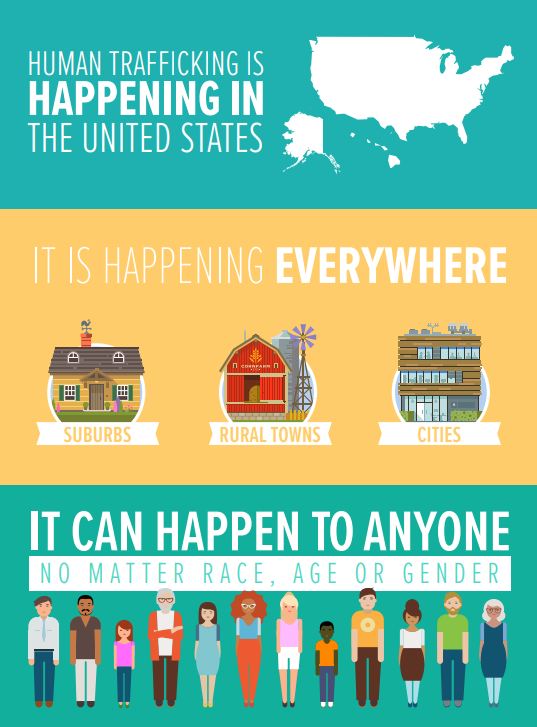 January is National Slavery and Human Trafficking Prevention Month, a time when advocates rally to raise awareness about an illegal practice that has victimized more than 40 million people globally.
January is National Slavery and Human Trafficking Prevention Month, a time when advocates rally to raise awareness about an illegal practice that has victimized more than 40 million people globally.
While many might imagine trafficking as a scourge afflicting only faraway lands or gritty cities, New Jersey has the potential to be one of the country’s major entry, transit, and destination states for human trafficking, according to the state Attorney General’s Office.
Why? Because the Garden State, centrally located between the East Coast’s northernmost stretches and the tri-state metropolitan region of Philadelphia, Baltimore, and Washington, D.C., is easily accessible by virtually any form of transportation, from car, bus, van, and truck to train, plane, and boat.
In fact, New Jersey law enforcement officials have nabbed several human traffickers in recent months who were hidden in plain sight. In November, three Mercer County residents were arrested for human trafficking, prostitution, tax evasion, and money laundering. A Trenton couple got indicted last April for forcing an underage girl into prostitution. And last year, two South Jersey men were charged with trafficking for forcing at least six women into sexual servitude.
Many more arrests and schemes go unpublicized, due to law enforcement officials’ reluctance to jeopardize the successful prosecution of traffickers and their desire to protect victims and survivors.
So on this month of awareness, consider what you can do to help end human trafficking.
What is human trafficking?
Human trafficking is modern-day slavery. Traffickers force, trick, or coerce victims into unpaid labor or prostitution. Every year, millions of people are trafficked around the world – three quarters are women and girls, and a quarter is children, according to the Polaris Project, a nonprofit that runs the National Human Trafficking Hotline. Eighty-one percent are trapped in forced labor, while others are forced into commercial sex.
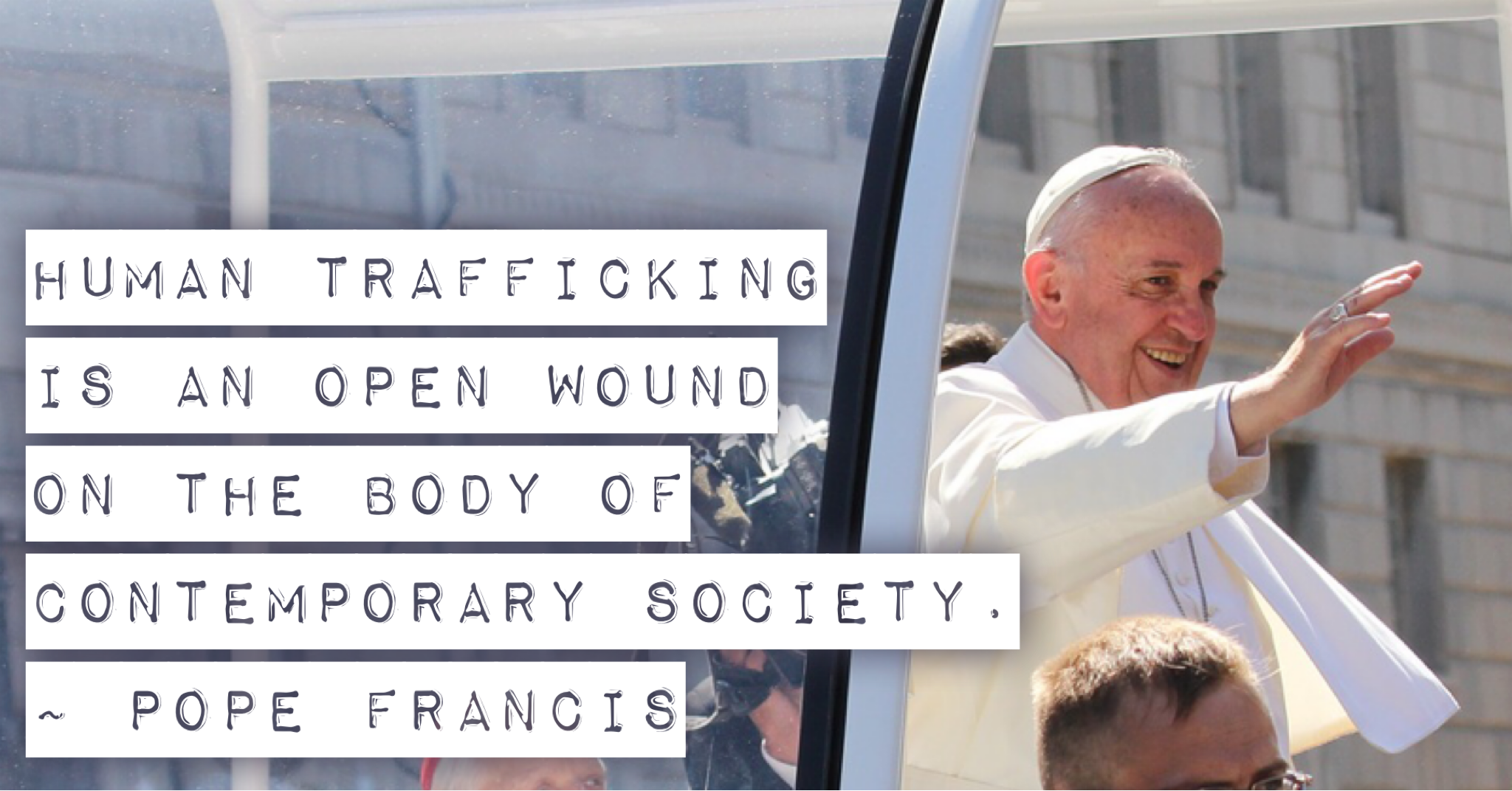 Human trafficking persists partly because it’s one of the most profitable forms of transnational crimes, generating billions of dollars a year for its perpetrators.
Human trafficking persists partly because it’s one of the most profitable forms of transnational crimes, generating billions of dollars a year for its perpetrators.
It’s also tough to eradicate because it’s a hidden crime: Victims rarely seek help because of language barriers, and they worry their traffickers could report them to immigration officials or harm them or their families. As a result, law enforcement officials often rely on the public to report suspected trafficking schemes.
Because it’s an underreported crime, there is no official estimate of how many human trafficking victims are in the U.S., according to the Polaris Project. But the project’s hotline fielded more than 14,000 calls in just the first half of last year alone, with nearly 5,150 cases of trafficking reported.
Traffickers typically choose their victims by preying on vulnerable people, such as those who are struggling with poverty, natural disasters, or political instability.
Know the signs
Anyone could help expose a human trafficking situation and get the victim help. All you need to do is know the signs – and know where to call.
While some victims may be kept behind closed doors, others can be hidden in plain sight, working in restaurants, farm fields, hotels, massage parlors, and other public places.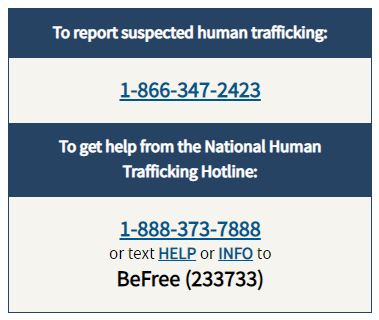
If you have a gut feeling that something is wrong, report it by calling your local law enforcement or the National Human Trafficking Hotline at (888) 373-7888 – or text HELP or INFO to BeFree (233733).
Here are some red flags that a person might be a human trafficking victim:
- Living with the employer
- Poor living conditions
- Multiple people in a cramped space
- Inability to speak without others around, lacks freedom of movement
- Potential victim’s answers appear to be scripted and rehearsed
- Someone else is holding the potential victim’s identity documents
- Signs of physical abuse, confusion or disorientation
- Signs of having been denied food, water, sleep or medical care
- Submissive, fearful, or disconnected from family, friends, community
- Unpaid or paid very little, lacks personal possessions
- Under 18 and in prostitution
- Suspected victim is a child who has stopped attending school
What we do
Catholic Charities, Diocese of Trenton received a three-year grant in 2017 from the U.S. Department of Justice to provide specialized services statewide to victims of human trafficking.
Our human trafficking program offers short- and long-term services, including comprehensive trauma-informed case management and advocacy services in all of New Jersey’s 21 counties. We help victims find safe shelter and access to medical care, counseling, language skills, education, job training, and career coaching.
What you can do
Catholic Charities recently distributed bottles that will be on display at local video-gaming stores where shoppers can donate their spare change to support the human trafficking program. Why video-gaming stores? Because some human traffickers use the live-chat feature of video games, as well as other forms of social media, to initiate contact with children and teenagers and eventually victimize them.
“Predators often prowl online, posing as other teenagers or young adults to gain the trust of a child,” said Maria Nikolatos, who heads up Catholic Charities’ human trafficking program. “They’re essentially grooming them in online interactions. After they’ve gotten the child’s trust, they might invite the child to meet up at a park or store – and that connection can be all they need to begin trafficking the child or sell them online.”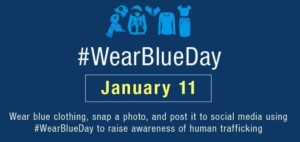
Besides learning about trafficking, alerting authorities to suspected victims, and donating your spare change, you can also mark National Human Trafficking Awareness Day on Jan. 11 by wearing blue. The U.S. Department of Homeland Security’s Blue Campaign is intended to raise awareness of human trafficking in a visual way. Organizers encourage supporters to snap photos of themselves in blue on Jan. 11 and post them to social media with the hashtags #WearBlueDay and #WeWearBlueBecause.
DHS also will host a Facebook Live panel discussion at 1 p.m. on Jan. 17 about how the private and public sectors are working together to raise awareness of human trafficking in the U.S. Details here.
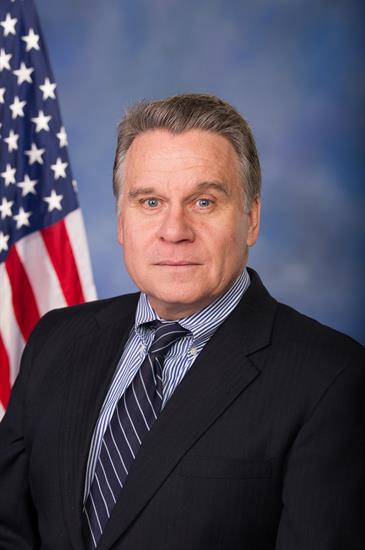 Another New Jersey connection
Another New Jersey connection
A local lawmaker led recent efforts to crack down on human trafficking in the U.S.
In 2017, U.S. Rep. Chris Smith (pictured, left), a Republican who represents parts of Mercer, Monmouth and Ocean counties, introduced the Frederick Douglass Trafficking Victims Prevention and Protection Reauthorization Act. The bill became law just last week. It was named for abolitionist Frederick Douglass, the former slave who became an abolitionist.
Under the law, the government will spend $430 million over four years on initiatives like teaching airline employees and federal officials how to detect trafficking and coordinating international efforts to curb the problem.
WE SEE THEM. DO YOU?
Are you a victim who needs help? Or someone who wants to set up training for a community-service agency? Contact Maria Nikolatos, human trafficking program coordinator, at (732) 363-5322, ext. 3239; [email protected]; or 200 Monmouth Ave., Lakewood, NJ 08701.
To subscribe to our blog posts and news releases, fill out the fields below.
